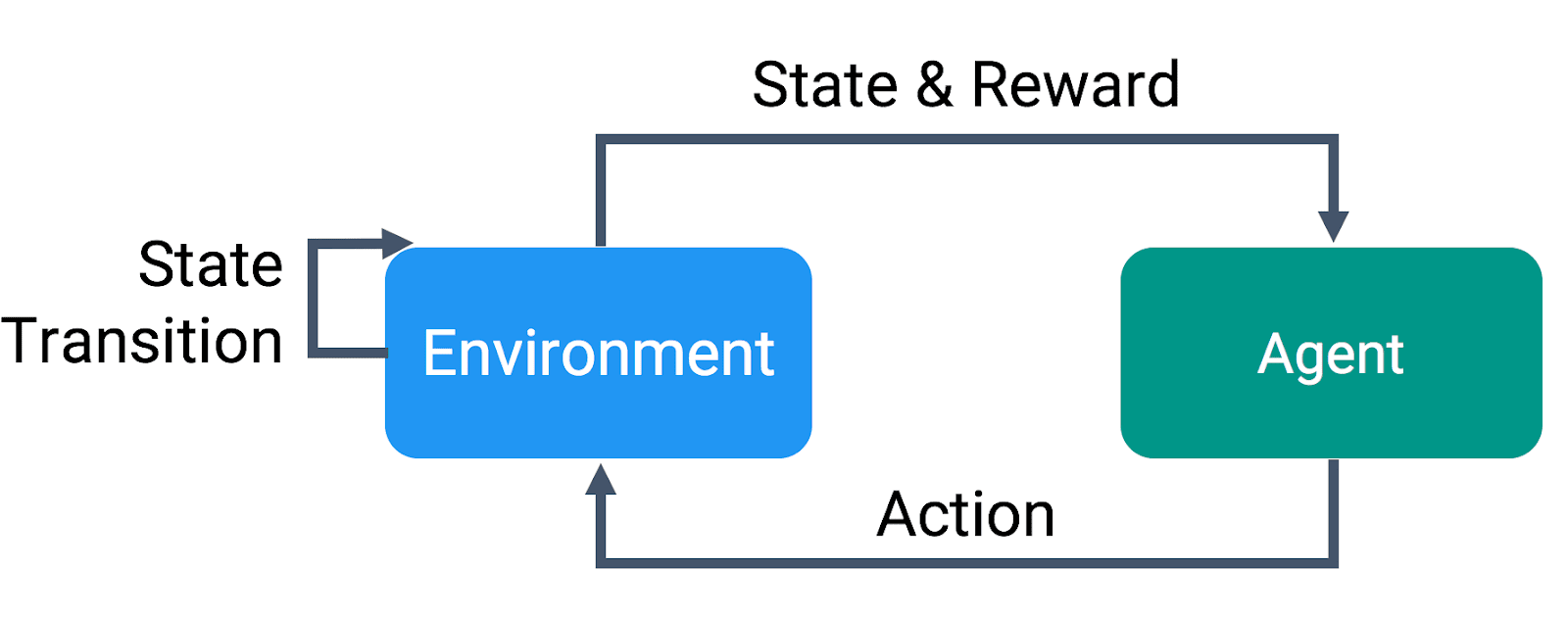There’s a lot we can learn playing games – from Newtonian physics to object-oriented coding, games can make us more capable and more informed. But here’s a thought that might sound a little ridiculous: what can games learn from us?
According to today’s article from Fast Company, Unity Technologies is looking to answer that very question. Yesterday Unity announced the open beta of Unity Machine Learning Agents (“ML-Agents” for short), an open-source platform that will allow developers to use Unity as a training environment for deep reinforcement learning. Developers will be able to train “agents,” that is, non-player entities, through repeated exposure to a cycle of action and reward, similarly to how a human player might learn a platforming game through trial and error. The cycle looks like this:

Image credit: Unity Technologies
As you can see, machine learning is underpinned by a fairly simple cycle – as Filament Games CTO Alex Stone once said of machine learning, it’s really not that fancy. But the implications of this technology as a game engine feature are anything but simplistic. Per Unity’s assessment, there are complex and interesting benefits in this new feature for the following groups:
- Academic researchers interested in studying complex multi-agent behavior in realistic competitive and cooperative scenarios.
- Industry researchers interested in large-scale parallel training regimes for robotics, autonomous vehicle, and other industrial applications.
- Game developers interested in filling virtual worlds with intelligent agents each acting with dynamic and engaging behavior.
Indeed, the research is already underway. For example, reinforcement learning has already enabled AI agents within the Unity engine to learn the game of Frogger:
Meanwhile, in the broader realm of pure AI research, Google’s own DeepMind AI has taught itself to walk, and the results are glorious:
Whether you’re on the Elon Musk side or the Mark Zuckerberg side of the AI debate, there’s no doubt that this technology is going to have a huge impact on how we design and populate digital experiences with interesting actors. If you’d like to try your hand at machine learning research, head over to the Unity ML-Agents Open Beta Github repo and get started today!